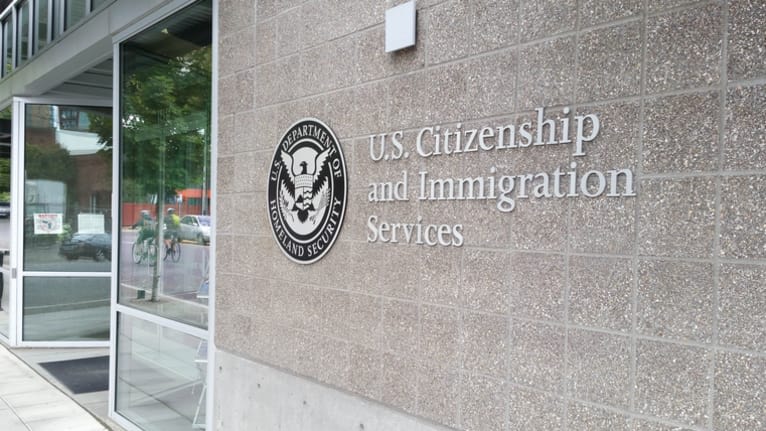USCIS Replaces H-1B Lottery with Salary-Based Selection
Incoming Biden administration could halt the regulation

United States Citizenship and Immigration Services (USCIS) issued a final rule Jan. 8 replacing the annual H-1B visa lottery that randomly selects foreign professionals with a process that prioritizes those offered the highest salaries for their occupation and geographic area.
The proposed regulation was first announced in October 2020, proposed in November and is scheduled to take effect March 9, just in time for this year's H-1B visa registration period.
However, the incoming presidential administration could freeze the regulation as a first step toward rescinding it, or it could be repealed by a Democrat-led Congress along with other regulations finalized during the last months of the Trump administration under the Congressional Review Act.
Under the new regulation, initial H-1B visas subject to the cap would be awarded first to people in the highest of four wage levels, according to the Department of Labor's (DOL's) prevailing wage system.
The DOL determines prevailing wages as the average wage paid to similarly employed workers in a specific occupation in the geographic area of intended employment. There are currently four DOL wage levels based on the duties and requirements of the job:
- Level I for entry-level workers.
- Level II for qualified employees.
- Level III for experienced employees.
- Level IV for fully qualified employees with enough experience to plan, modify and approve standard procedures.
After the highest paid workers are selected, petitions would be chosen in descending order through the remaining levels until the cap has been reached. USCIS predicted that under the new regulation, no workers paid Level 1 entry-level wages would be selected for the coveted H-1B visas.
USCIS is currently revising its online H-1B cap registration form to request information on the DOL wage level associated with the offered salary and position.
The agency said that a wage-based process is a better way to allocate H-1Bs because it incentivizes employers to offer higher pay or recruit for positions requiring higher skills.
The Trump administration has long argued that the visa program artificially depresses wages by allowing employers to hire foreign workers at lower salaries.
"The H-1B temporary visa program has been exploited and abused by employers primarily seeking to fill entry-level positions and reduce overall business costs," said USCIS Deputy Director for Policy Joseph Edlow. "The current H-1B random selection process makes it difficult for businesses to plan their hiring and has predominately resulted in the annual influx of foreign labor placed in low-wage positions at the expense of U.S. workers."
Rule Will Hurt Hiring Plans
Critics of the change say the focus on salary will hinder the recruiting and hiring of skilled workers from abroad, especially those just starting out in their careers. "This proposal will significantly disrupt the operations of many businesses by denying them access to the talent they need to grow and create jobs," said Jon Baselice, executive director of immigration policy at the U.S. Chamber of Commerce.
Stuart Anderson, the executive director of the National Foundation for American Policy, a public-policy research organization based in Arlington, Va., said the regulation will negatively impact international students and others with less experience who could be shut out of obtaining H-1B visas.
"If employers must pay individuals with no work experience the same as employees with several years of experience, international students may become too expensive to hire," Anderson said. "If working after graduation becomes more unlikely, the rule could affect whether international students choose to study in the United States at all."
The new rule is flawed because it will negatively impact small- to medium-sized business that may not be able to afford higher wages, said Anantha Paruthipattu, founder and principal attorney at Paruthipattu Law Firm, based in Herndon, Va. "By pegging the lottery to the wages paid, and more specifically to the highest wage level, the rule creates an unfair advantage for large employers and disfavors small- to medium-sized employers who cannot hire top talent for reasonable market wages," he said. "My clients, who are all small- to medium-sized business, will likely lose the ability to hire STEM workers and other occupations if their access to the talent pool, including foreign workers, is severely limited."
President-elect Joe Biden could freeze and rescind the proposal, though some believe he and other Democrats may favor something similar. Biden's campaign platform mentions establishing a wage-based allocation process for temporary foreign workers and enforcement mechanisms "to ensure [employment-based visas] are aligned with the labor market and not used to undermine wages" or "to disincentivize recruiting U.S. workers" for in-demand occupations.
An organization run by AI is not a futuristic concept. Such technology is already a part of many workplaces and will continue to shape the labor market and HR. Here's how employers and employees can successfully manage generative AI and other AI-powered systems.



